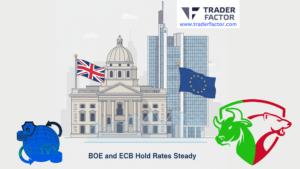The UK GDP figures for the second quarter of 2024 have been released, showing continued economic growth. The economy expanded by 0.6%, following a 0.7% increase in the first quarter.
Quarterly UK GDP Growth
Figures from the Office for National Statistics (ONS) reveal that the UK’s gross domestic product (GDP) grew by 0.6% in Q2 of 2024, following a 0.7% rise in the first quarter. This growth aligns with predictions and underscores the resilience of the UK economy in the face of various challenges. Despite this, June’s monthly GDP growth was flat, affected by poor weather that deterred consumer spending.
Sector Performance
The consumer-facing service sector saw a slight decline of 0.1% due to reduced physical goods purchases, impacted by both the cost of living crisis and unfavorable weather conditions. Manufacturing and construction outputs also experienced declines. However, the overall pace of economic growth this year has surpassed many forecasts, with the UK recording the strongest growth among G7 advanced economies over the past six months.
International Comparisons and Challenges
The UK’s 0.6% growth in Q2 compares favorably to the eurozone’s 0.3% and the US’s 0.7%. Despite this, the long-term outlook remains cautious due to high living costs, elevated interest rates, and sluggish productivity gains. The economy had entered a recession in the latter half of last year, marked by two consecutive quarters of declining GDP, as household spending contracted.
Future Projections
Experts caution that the recent economic strength may not be sustainable. The Bank of England has revised its 2024 growth forecast upward from 0.5% to 1.25%, but it also warns of a weaker medium-term outlook due to high interest rates impacting economic activity. Financial markets anticipate another interest rate cut from the Bank in September, following lower-than-expected inflation figures in July.
Population Growth and Living Standards
Much of the recent economic expansion has been driven by population growth. However, GDP per head, a key indicator of living standards, was 0.1% lower in Q2 2024 compared to the same period last year and 0.8% below pre-pandemic levels. This highlights ongoing challenges in improving individual prosperity despite overall economic growth.
Summary Table
This table encapsulates the key data points from the recent economic reports, providing a snapshot of the UK’s economic health as of the second quarter of 2024.
| Economic Indicator | Value |
|---|---|
| Q2 2024 GDP Growth | 0.6% |
| Q1 2024 GDP Growth | 0.7% |
| Annual GDP Growth (Q2 2024) | 0.9% |
| Service Sector Growth (Q2 2024) | 0.8% |
| Manufacturing Output Change | -0.1% |
| Construction Output Change | -0.1% |
| GDP per Head (Q2 2024) | -0.1% year-over-year |
| GBP/USD Exchange Rate | ~1.2850 |
| EUR/USD Exchange Rate | ~1.1000-1.1050 |
| Bank of England Growth Forecast | 1.25% for 2024 |
| US Inflation (July 2024) | 2.2% |
| Gold Price | $2,450 |
| Japan Q2 2024 GDP Growth | 0.8% |
Market Reaction
The GBP/USD exchange rate saw moderate gains, trading near 1.2850 in the European session. The GDP growth figures bolstered the Pound Sterling, keeping it resilient against other currencies. Investors are now looking ahead to US economic data, including inflation figures and retail sales reports, which could influence future market movements.
EUR/USD Consolidation
EUR/USD remained above 1.1000, consolidating within a familiar range in European trading on Thursday. The pair had gathered bullish momentum, reaching its highest level of 2024 near 1.1050 on Wednesday. However, the upside remains limited as traders turn cautious ahead of key US Retail Sales data.
Impact of US Inflation Figures
US Consumer Price Index (CPI) and core CPI both rose by 0.2% on a monthly basis in July, aligning with forecasts. This led to an improved risk mood and made it difficult for the US Dollar to gain demand. Consequently, US stock index futures traded modestly higher on Thursday morning.
Expectations for US Retail Sales and Initial Jobless Claims
The US economic calendar featured crucial data including weekly Initial Jobless Claims and July Retail Sales on Thursday. A significant decline in first-time applications for unemployment benefits, with a reading below 220,000, could lend strength to the US Dollar. Retail Sales were forecasted to rise by 0.3% after remaining unchanged in June. Any negative deviation could revive fears over an economic downturn in the US, potentially impacting the USD negatively.
Gold Prices Surge
Gold prices rose above $2,450 as traders widely anticipated a Fed rate cut in September. The US CPI data for July boosted confidence that inflation is on track to return to the desired rate of 2%. The precious metal gained ground, reflecting growing investor confidence that the Federal Reserve would start unwinding its restrictive monetary policy stance.
USD/JPY Movements
The Japanese Yen gained ground against the US Dollar on Thursday. Japan’s GDP growth for Q2 surpassed expectations, strengthening the case for a potential near-term interest rate hike by the Bank of Japan. However, the USD/JPY pair received support from improved US Treasury yields despite the dovish sentiment surrounding the Fed. Traders are now favoring a 25 basis point rate cut by the Fed in September, with a 60% probability.
Disclaimer:
All information has been prepared by TraderFactor or partners. The information does not contain a record of TraderFactor or partner’s prices or an offer of or solicitation for a transaction in any financial instrument. No representation or warranty is given as to the accuracy or completeness of this information. Any material provided does not have regard to the specific investment objective and financial situation of any person who may read it. Past performance is not a reliable indicator of future performance.

















